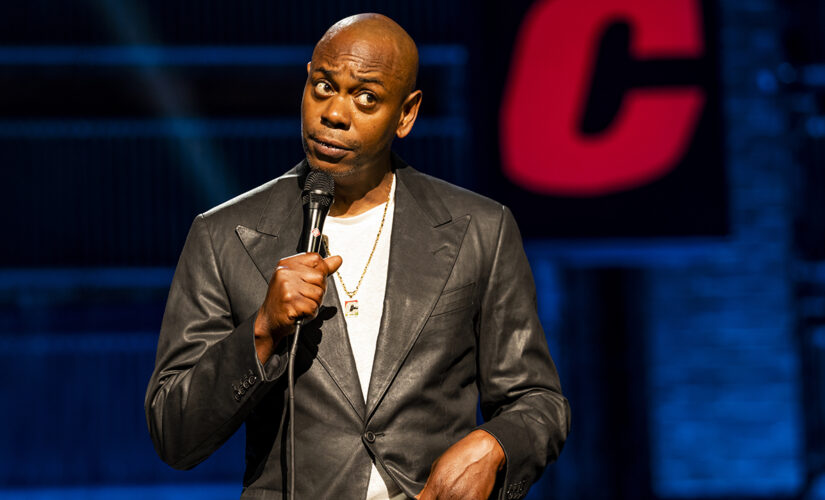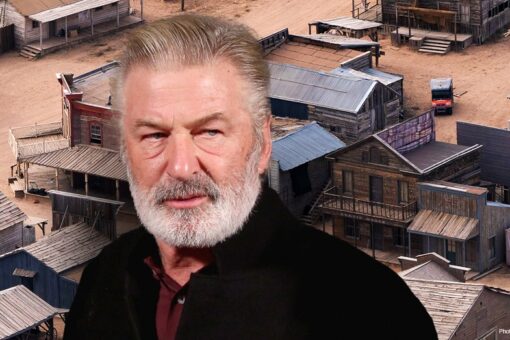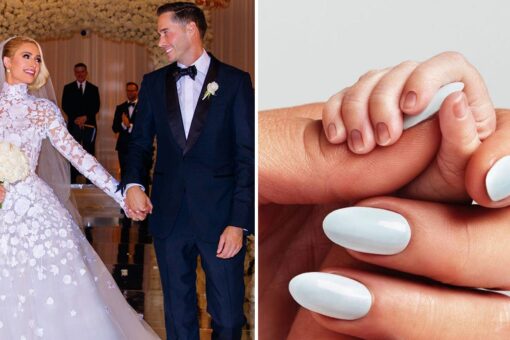As cancel culture becomes more and more ubiquitous in show business, comedians are finding it particularly difficult to ignore.
When one’s profession is to take the stage to shake up and lambaste pop culture and society, the odds that a joke or train of thought will venture into cancelable territory shoots up beyond even the most outspoken of celebrities.
Most recently, Dave Chappelle has found himself in the crosshairs of people calling for him to be canceled and for Netflix to make some kind of amends for giving him a platform to espouse comments that many deemed transphobic on his latest special “The Closer.”
However, Chappelle is far from the first comedian to speak directly about cancel culture, with some supporting it as a method of accountability to modern comedians and others likening it to McCarthyism of the 1940s.
Below is a rundown of just some of the comics who have discussed the concept in the past.
Jamie Kennedy
Jamie Kennedy previously said that he supports the conversation that ‘cancel culture’ sparks.
(Tommaso Boddi/Getty Images)
The 50-year-old actor spoke to Fox News while promoting his new film “Last Call” about the social media phenomenon and why there doesn’t seem to be any room for forgiveness or growth.
“It’s a dicey time. I mean, let’s take [a] recent example … Pepe Le Pew. I mean, if we put a magnifying glass to everything in history, I will assure you with the new guard you can almost cancel everything. So it’s a matter of nuances and context,” he reasoned.
“Does a cartoon have real-world implications? Yes, if enough people consume it, they believe that is a law. But the question is, do you believe a skunk can talk, and do you believe a skunk buys flowers for a cat?” Kennedy questioned. He pointed out that individuals need to have “personal responsibility” as well.
SHARON STONE TEARS INTO CANCEL CULTURE
Kennedy concluded that he’s “all about the convo” but admitted, “It’s a scary time [and] at some point you’ve got to live, right? It’s like there’s no forgiveness anymore.”
Billy Crystal
Billy Crystal discussed cancel culture and its impact on comedy.
(REUTERS/Lucas Jackson)
Crystal weighed in during an interview with The New York Post.
“It’s becoming a minefield, and I get it,” said the star, 73. “I don’t like it, I understand it. … I just keep doing what I’m doing and that’s all you can do right now.”
“It’s an interesting time, it’s an interesting time,” he said.
Donald Glover
Donald Glover spoke out about the impact that cancel culture has had on movies and TV.
(Emma McIntyre/Getty Images for LACMA)
The comedian, rapper and actor is typically very quiet on social media. In fact, prior to his recent three-tweet rant about TV and film, there wasn’t really any content on his page at all. However, in May, the “This is America” singer couldn’t help but speak up when he read a discussion about reviewers being sick of “boring stuff.”
“Saw people on here havin a discussion about how tired they were of reviewing boring stuff (tv & film),” Glover said in the first of three since-deleted posts.
“We’re getting boring stuff and not even experimental mistakes(?) because people are afraid of getting cancelled,” he continued.
The star concluded his thoughts by writing, “So they feel like they can only experiment w/ aesthetic. (also because some of em know theyre not that good).”
Chris Rock
‘Saturday Night Live’ star Chris Rock talked cancel culture on ‘The Breakfast Club.’
(Will Heath/NBC/NBCU Photo Bank via Getty Images)
Chris Rock spoke out against cancel culture, noting that it’s led to “unfunny” and “boring” content from comedians.
The stand-up comedian appeared on “The Breakfast Club” in May. During the interview, Rock was asked about “cancel culture” and how it has impacted him as a comedian. He noted that, after a year in quarantine due to the coronavirus pandemic, he’s found the landscape to be drastically different.
“It’s weird when you’re a comedian because like, when you’re a comedian, when the audience doesn’t laugh, we get the message. You don’t really have to cancel us because we get the message. They’re not laughing,” he explained. “Our feelings hurt. When we do something and people aren’t laughing we, like, we get it.”
KEVIN HART POSTS INSPIRING VIDEO DETAILING HIS RECOVERY FROM CAR CRASH
Rock continued by calling the cancellation of comedians “disrespectful” to the audience that is at a live performance for the sole purpose of judging the content.
“I don’t understand why people feel the need to go beyond that, you know what I mean?” he explained. “Honestly, to me, it’s a disrespect. It’s people disrespecting the audience like, ‘Oh, you think you know more than the audience?’ The audience knows more than everybody, OK. You know, but hey, some things don’t need to be said. Some people need to be looked out for, I definitely understand that, but not letting comedians work is, you know. What happens is everybody gets safe, and when everybody gets safe and nobody tries anything, things get boring.”
The star went on to lament that fear of getting canceled has led many comedians to avoid taking risks, thus leading to a slew of “unfunny comedians” as well as “unfunny” shows, movies, and other projects.
“Everybody’s scared to make a move,” Rock declared.
“That’s not a place to be. You know, we should have the right to fail because failure, failure is a part of art,” he added.
Seth Rogen
Seth Rogen downplayed the impact of cancel culture on comedians.
(Kevin Mazur/2021 MTV Movie and TV Awards/Getty Images for MTV/ViacomCBS)
Seth Rogen downplayed the impact of cancel culture by arguing that some comedians are going a bit overboard in reckoning with past jokes that have not aged well.
Rogen, 39, appeared on “Good Morning Britain” earlier this year where he showed some understanding toward cancel culture proponents even taking responsibility for “certain jokes” that he understands would not play well today.
“There are certain jokes that for sure have not aged well, but I think that’s the nature of comedy,” Rogen said (via Insider). “I think conceptually those movies are sound, and I think there’s a reason they’ve lasted as far as people still watching and enjoying them today. Jokes are not things that necessarily are built to last.”
The “Pineapple Express” actor went on to deride fellow comedians who rail against cancel culture when they’re taken to task over material they produced in the past.
“To me when I see comedians complaining about this kind of thing, I don’t understand what they’re complaining about,” he continued. “If you’ve made a joke that’s aged terribly, accept it. And if you don’t think it’s aged terribly, then say that.”
He noted that facing criticism for his work is simply something that goes hand-in-hand with being an artist, particularly one in comedy.
“If you don’t like that, then don’t be a comedian anymore,” he said. “To me, it’s not worth complaining about to the degree I see other comedians complaining about.”
Katt Williams
Katt Williams mocked comedians who are worried about cancel culture.
(Jason Davis/Getty Images)
The comic, 49, appeared on “The Joe Budden Podcast” when the hosts asked him directly for his opinions on the current state of comedy and what cancel culture means for the future of the genre. Williams took a hard stance on the issue, arguing that it’s merely an invitation for talented artists to elevate their work.
“If you ask all of the people who didn’t make it to the NBA, if you asked them if we just lowered the goal down another foot, they would all tell you they’d make it. Nobody likes the out of bounds, but the out of bounds has got to be there,” he said. “Some of these things are for the benefit of everything. Nobody likes the speed limit, but it’s necessary. Nobody likes the shoulder of the road, but it’s there for a reason.”
He added: “My point is, [people] weren’t all that extremely funny back when they could say whatever they wanted to say. At the end of the day, there’s no cancel culture. Cancellation doesn’t have its own culture.”
COMEDIAN KATT WILLIAMS ARRESTED FOR ALLEGED ASSAULT ON A DRIVER
Williams went on to note that the slew of comedians complaining about cancellation and heightened sensitivity aren’t necessarily the ones the comedy world will miss when they’re gone.
“I don’t know what people got canceled that we wish we had back. Who are they? It’s done for the reasons it’s done for and it helped who it helped,” Williams said. “If all that’s going to happen is that we have to be more sensitive in the way that we talk, isn’t that what we want anyway? I’m saying, your job as a comedian is to please the most amount of people with your art. So if you wanna offend somebody, nobody took those words away from you … But don’t call somebody this word when you know it affects all of these people.”
Jon Lovitz
Jon Lovitz compared cancel culture to McCarthyism.
(OGUT/Star Max/GC Images)
The former “Saturday Night Live” comedian went as far as comparing cancel culture to McCarthyism of the 1940s during an an interview with Page Six.
Lovitz told the outlet that it’s his job to “satirize what’s going on in society and point out the hypocrisies.” He believes that cancel culture’s recent prevalence has made it difficult for both him and other comedians to do their jobs as well as they used to be able to.
“As soon as you say to a comedian like me, ‘You can’t say that,’ the first thing in my head is, ‘Oh, and now I have to,'” he explained.
He added that there is a difference between simply making a joke about something sensitive and “being outright mean.”
“If you don’t have the ability to laugh at yourself, don’t go to a comedy club,” Lovitz cautioned. “I’m not changing my act. If you’re watching TV and you don’t like the show, change the channel. It’s very simple.”
Kevin Hart
Kevin Hart, who previously faced criticism that saw him step down as host of the Oscars, spoke out against cancel culture.
(Alberto Rodriguez/E! Entertainment/NBCU Photo Bank)
Speaking to The Sunday Times, the comedian directly addressed the growing tide of cancel culture, noting that he isn’t bothered by the incident because he simply doesn’t allow it to bother him.
“If people want to pull up stuff, go back to the same tweets of old, go ahead,” he said. “There is nothing I can do. You’re looking at a younger version of myself. A comedian trying to be funny and, at that attempt, failing. Apologies were made. I understand now how it comes off. I look back and cringe. So it’s growth. It’s about growth.”
Hart made sure to note that people who have done something truly damaging to others should be held accountable and face consequences. However, he doesn’t believe that’s always the case when it comes to cancel culture, specifically in his situation.
“When did we get to a point where life was supposed to be perfect? Where people were supposed to operate perfectly all the time? I don’t understand,” he continued. “I don’t expect perfection from my kids. I don’t expect it from my wife, friends, employees. Because, last I checked, the only way you grow up is from f—ing up. I don’t know a kid who hasn’t f—ed up or done some dumb sh–.”
Hart likened the situation many comedians are facing to someone getting out of jail to find that public scrutiny has extended their punishment far beyond what any judge ordered.
KEVIN HART’S PERSONAL SHOPPER ACCUSED OF DEFRAUDING COMEDIAN OUT OF OVER $1 MILLION
“People get locked up so they can be taught a lesson,” he explained. “When they get out, they are supposed to be better. But if they come out and people go, ‘I’m not giving you a job because you were in jail’ then what the f— did I go to jail for? That was my punishment? How do you not give those people a shot? They’re saying that all life should be over because of a mistake? Your life should end and there should be no opportunity to change? What are you talking about?”
Whoopi Goldberg
Whoopi Goldberg discussed cancel culture.
(Walt Disney Television/Lou Rocco)
The EGOT winner, 65, addressed the social phenomenon at the Edinburgh TV Festival. Per Variety, Goldberg said she feels like “the truth doesn’t seem to matter as much these days.”
“The View” co-host was asked about her own experience with cancel culture after allegedly making a joke about President George W. Bush in 2004 at a fundraising event.
“I would describe that situation as a lot of people covering their backsides, because the joke was never about him,” Goldberg recalled. “But no one ever stood up and said, ‘Hey, here’s what actually happened.’ And they put it in the newspaper. And you notice, they’d never seen what I exactly said, or what I said at all. But all somebody has to do is say you said it.”
DAVID SPADE TALKS ABOUT THE DANGERS OF CANCEL CULTURE FOR COMEDIANS
“Because there is cancel culture, people will call or text and say, ‘I’m not buying your product. This is who you have talking about your product, me and my 5 million followers, if you keep her, we’re not going to buy your car, or we’re not going to buy your shampoo or we’re not going to buy your toothbrush or we’re not going to buy your Pampers,'” Goldberg mused.
David Spade
David Spade arguably benefited a bit from cancel culture.
(Kevin Mazur/Getty Images for Comedy Central)
It can be argued that Spade benefited a bit from cancel culture, recently wrapping up a guest-hosting stint on “Bachelor In Paradise” after regular host Chris Harrison departed the franchise amid a racism scandal.
CLICK HERE TO SIGN UP FOR OUR ENTERTAINMENT NEWSLETTER
Speaking to Variety about his time on the show, Spade noted that “Bachelor” producer Mike Fleiss gave him the freedom to say what he wanted during his time on the show, even if that meant lightly mocking the series. While the former “Saturday Night Live” cast member enjoyed his freedom as a guest host, he was asked about the fact that many comedians find themselves under more restrictions than ever these days.
“It’s very dicey. It’s very tricky,” Spade responded. “You used to have to say anything to go as far as you could, to push the envelope, to get attention, and people would be like, ‘I like this guy. He’s pushing it.’ And in comedy clubs, audiences really appreciate that.”
He added: “Now you say the one wrong move and you’re canceled. It’s a very tough world out there.”
Cedric the Entertainer
Cedric the Entertainer spoke about cancel culture ahead of hosting the 2021 Emmys.
(Photo by Gregg DeGuire/Getty Images)
Speaking to The Hollywood Reporter, the “Neighborhood” executive producer said the possibility of getting canceled over just one joke is not lost on him.
“Nowadays, it’s crossing the line, right? It’s not bad if you’re the news for a couple of days, but you don’t want to be the guy that ruins the night or someone’s moment,” he said. “At the same time, you’ve got to be yourself. As comedians, we’re up on a tightrope trying to make sure people are entertained. But, again, we’re living in a hypersensitive society. You don’t know where that line is sometimes. It moves from day to day.”
CLICK HERE TO GET THE FOX NEWS APP
The star went on to discuss why he’s tweaking his approach and compared the risk of delivering humor on a national stage these days to writing “an English paper.”
“You have your joke, then you look at the words and think about how you can transform them. Should I say ‘yo mama’ or ‘a mama?’ It’s about making sure the joke lands in a way that you say what you wanted to say – but don’t necessarily direct it at anybody specifically.”
Fox News’ Jessica Napoli and Nate Day contributed to this report




